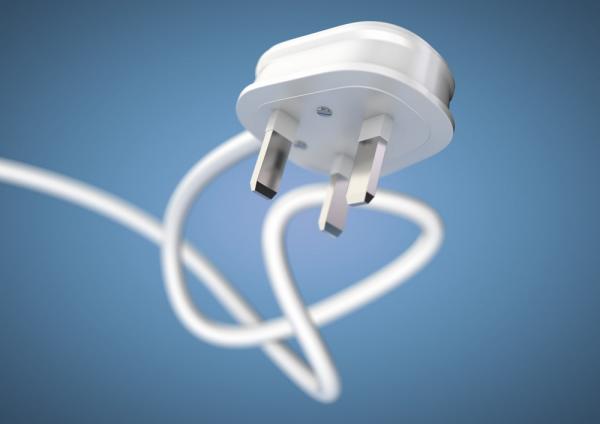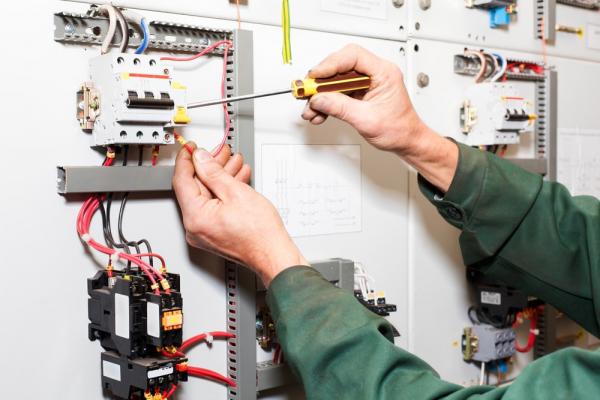Perhaps the highest-profile planned change is the introduction of mandatory five-year electrical installation checks in private rented accommodation in England, which the Ministry of Housing, Communities and Local Government (MHCLG) proposes to implement in a phased approach.
What is being introduced?
At the end of January 2019, MHCLG announced its plans regarding mandatory electrical safety checks in private rental homes.
An implementation date has not yet been given, but MHCLG said it hopes to introduce the new legislation as soon as parliamentary time allows. However, with the significant votes on Brexit that currently occupy most of the time of the House of Commons, it is not clear how long this could take.
The deputy of Heather Wheeler, deputy secretary of parliamentary state of the MHCLG, said at the end of February that the mandatory electrical safety checks in the PRS would be introduced "as soon as possible".

Following a consultation on 'Electrical safety in the private rented sector', which was held from February to April 2018 and received 582 responses from a variety of organizations and individuals, including electricians, rental agents, local authorities, owners and individual tenants, e fires and rescue representatives, the Government responded in January 2019.
He said the new rules will require owners to ensure that the inspectors they hire to perform the controls have the competence and qualifications necessary to do so. Strong financial sanctions will be imposed on those who do not comply.
The Government also said it will publish a new guide, which describes the minimum level of competence and qualifications necessary for those who perform these inspections.
Wheeler said the new measures will reduce the risk of defective electrical equipment in homes, which in turn will give renters peace of mind and prioritize their safety.
He added that the measures will provide a clear guide to the owners on who they should hire to carry out these vital electrical safety controls, and the guide will also provide a clear responsibility at each stage of the inspection process, what is required and of Who is the responsibility? - without "imposing excessive cost and time charges on the owners".

Time to prepare
The Government insists that the property industry, which broadly supports the new measures, will have at least six months to "familiarize itself with the new duty" before it enters into force.
There are also a number of elements for the phased approach, which is based on the framework used in London in 2015, when the UK government implemented similar new rules to make electrical safety for Landlord . These are the following:
A transition period will apply in the first two years, and the new rules will only apply to all new private holdings in the first year, before being extended to all existing private holdings in the second year.
Rental properties with an existing EICR (electrical installation condition report) will not need to be replaced for five years from its start date.
In the case of new and fully wired properties, a Certificate of electrical installation may be provided instead of an EICR provided that the date of the next inspection indicated in the certificate has not elapsed.
What happens next?
The proposals must still be fully approved by Parliament. The regulations are subject to the affirmative procedure and must be debated and approved both in the House of Commons and in the House of Lords before they can enter into force.
Once the regulations have been approved, they will be introduced in phases, starting with new holdings.
The other important recommendations of the consultation revolved around the promotion of voluntary actions by the owners to improve the standards of electrical safety in the sector, for example, by performing visual controls of the electrical installations in the change of a lease. A high level of support for all landlord action measures was recorded in the consultation document.
It is also to engage with industry stakeholders to produce a new guide that Establish how owners can determine competition. In addition to this new orientation, the Government will also encourage operators of schemes of competent persons to establish new inspection and electrical test schemes that inspectors and evaluators could opt for.
The new orientation and any voluntary scheme of competent person will be finalized six months before the new regulatory requirements come into force.
With the insistence that the industry will be given at least six months to accept the new regulations before they become law, and the same time frame for the completion of the new orientation and any voluntary scheme of competent person, there are All the chances that the measures win will now be presented until the end of 2019, or even early next year.
But it is important to be aware of what is coming. And, even before the new measures come into play, it is a good idea for you, or your rental agent on your behalf, to keep abreast of the safety of your rental properties, including periodic monitoring of electrical installations for make sure that the tenants are in no risk of defective equipment and the possible risks that this could cause. for more info click here

No comments:
Post a Comment